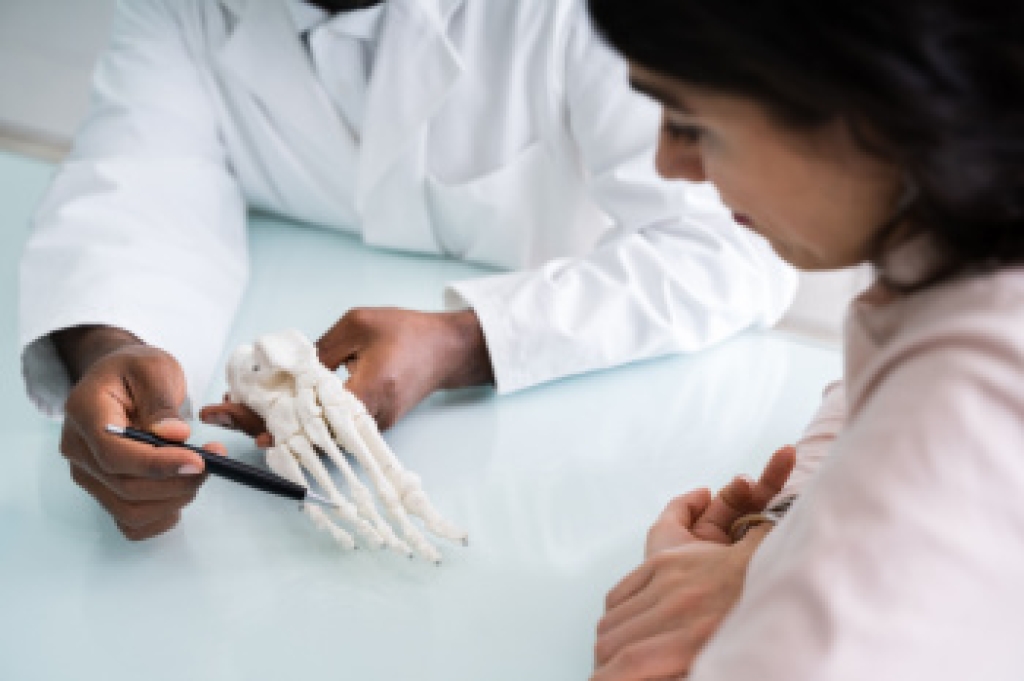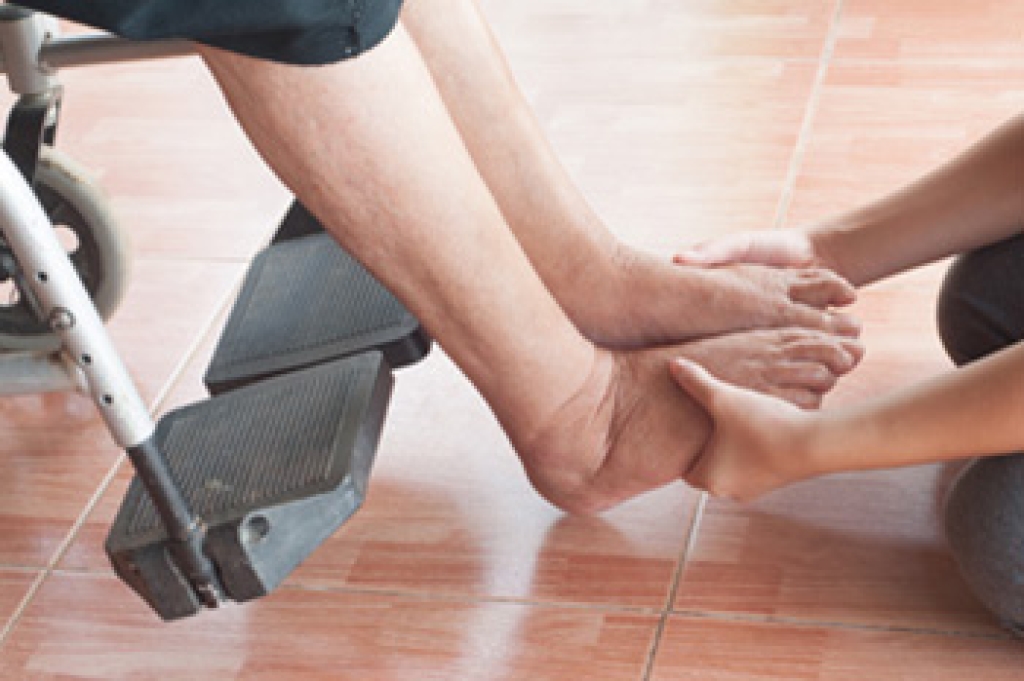
A podiatrist is a medical doctor who specializes in the care of the feet, ankles, and lower legs. This includes diagnosing and treating injuries, chronic conditions, and structural problems that affect how people walk and move. Podiatrists care for issues such as heel pain, bunions, ingrown toenails, fungal infections, arthritis, and sports-related injuries. They also play an important role in managing diabetic foot problems, nerve conditions, and wounds that require close monitoring. Beyond treating pain, podiatrists focus on prevention and long-term foot health. They may recommend footwear changes, custom orthotics, stretching programs, or lifestyle adjustments to reduce stress on the feet and joints. Many podiatrists also perform in-office procedures and surgery, when needed, to restore function and comfort. If you have ongoing foot or ankle concerns, it is suggested that you see a podiatrist for a proper diagnosis and appropriate treatment.
If you are experiencing pain in the feet or ankles, don’t join the stubborn majority refusing treatment. Feel free to contact Michael Bess, DPM from Florida. Our podiatrist can provide the care you need to keep you pain-free and on your feet.
What Is a Podiatrist?
Someone would seek the care of a podiatrist if they have suffered a foot injury or have common foot ailments such as heal spurs, bunions, arch problems, deformities, ingrown toenails, corns, foot and ankle problems, etc.
Podiatric Treatment
A podiatrist will treat the problematic areas of the feet, ankle or lower leg by prescribing the following:
- Physical therapy
- Drugs
- Orthotic inserts or soles
- Surgery on lower extremity fractures
A common podiatric procedure a podiatrist will use is a scanner or force plate which will allow the podiatrist to know the designs of orthotics. Patients are then told to follow a series of tasks to complete the treatment. The computer will scan the foot a see which areas show weight distribution and pressure points. The podiatrist will read the analysis and then determine which treatment plans are available.
If you have any questions, please feel free to contact our office located in West Palm Beach, FL . We offer the newest diagnostic and treatment technologies for all your foot care needs.




